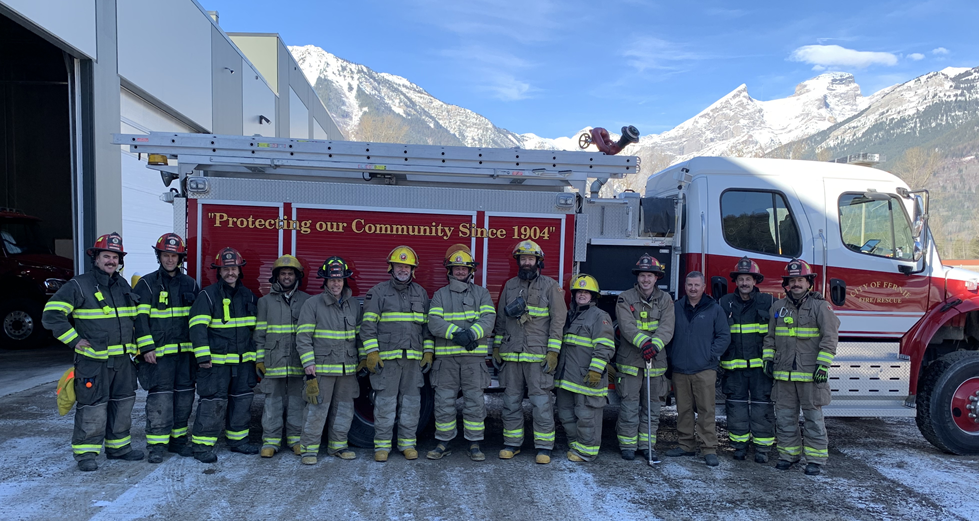Frozen Water Pipes
At certain times of the year we have problems with frozen water lines in our community. The following information is provided to assist residents whose properties have pipes susceptible to freezing.
Why are people having trouble with frozen lines?
Most people know that in winter, it’s common to have frozen ground but how deep that frost penetrates can vary. If it’s under a traveled portion of road, frost will be pushed many metres into the ground. If the ground is covered in snow, there may be little or no frost.
In the winter season, with so many days of uncommonly cold temperatures, frost is being driven down deep in the travelled areas.
Municipal Design guidelines in Fernie require that the depth of bury for water mains should be 2.4 meters, but these are more recent guidelines. In older areas of the community, it’s not uncommon to see lines buried at 1.5 and 2.0m deep. For those areas, it’s important for residents to know that prolonged cold periods can affect their water service delivery.
There is no way that the City can prevent the water line from freezing when the frost is deeper than the line is buried, but you can. You can either install a bleeder valve in your home that can be turned on at the start of winter and off in the spring, or you can leave a tap running in your home. Either way, a continuous flow of water will be the only way you can prevent your water service from freezing when the line is exposed to frost. The continuous flow does not need to be bigger than the size of a pencil. This is especially important for residents who are out of town over the winter and are unable to monitor their waterlines.
What is a bleeder valve?
This is a plumbing fitting installed on the main water line coming into your home. This fitting has a ¼” line that allows a continuous flow of water that gets directed to your sewer line. It should be turned on at the beginning of winter, October 1st and left on until May 1st. You can call your plumber to have a bleeder valve installed.
Is it ok to turn off the water on warmer winter days?
No, the frost in the ground doesn’t react to the few warm days in winter. The frost remains deep into the ground for a prolonged period, well into April in some locations.
What about water conservation?
Although leaving water running will affect the volume that is used overall, it is necessary to keep the water moving through pipes in areas that are susceptible to freezing. Newer areas in the City of Fernie built from the mid 80’s and later will be less likely to freeze based on the depth that the water pipes were installed. Be aware freezing waterlines can occur anywhere in extreme cold temperatures.
Your responsibilities and what to do.
It is the Property Owners responsibility to thaw or have thawed frozen water lines. If you suspect you have a frozen water service, here is what you can do:
- Always call a plumber
- to verify that you have a frozen service, if so, they can assist in thawing your line.
- A couple of options that can be done to thaw your line:
- Use an electric current if your line is copper or steel. If you are using an electric current for this process, it’s important that you contact an electrician to disconnect any potential ground source from your water main to your electric panel
- Use a hot water thaw machine.
- Call the city so that the property water shut off valve can be located. The City will not provide any service to thaw waterlines.
- Do not use chemical substances to try to thaw the waterline as there is a serious risk of contamination of the drinking water.
- If you have experienced frozen water lines in the past, ensure that you either install the bleeder valve or leave a tap running to prevent it from occurring again.




.png)